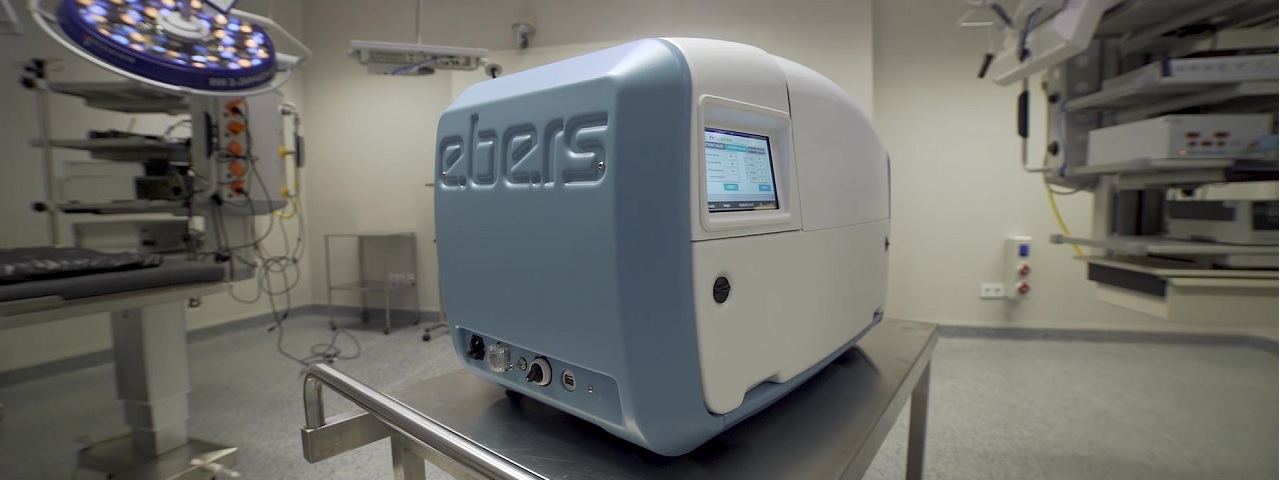Ebers scores CE mark certification for ARK Kidney®

- Securing the CE mark as a medical device, sets Ebers as a leader in the market, making ARK Kidney® one of the first normothermic kidney perfusion products approved by the new MDR regulation.
- ARK Kidney® is an innovative normothermic perfusion device, designed to optimize the preservation of kidney under physiological conditions and facilitate viability assessment of the organ prior to transplantation.
- This milestone builds on top of existing Ebers achievements in life sciences and medical technology for transplantation, including several recent successful product launches.
Zaragoza, Spain, September 13th, 2023. Ebers, a company designing pioneering medical devices for ex vivo organ perfusion, has reached a key milestone by obtaining CE mark certification under EU MDR 2017/745. This allows the company to commercialize ARK Kidney® for clinical use in the European market, after launching the solution for research applications in 2021. The new regulatory stamp makes ARK Kidney® one of the first normothermic kidney perfusion products.
“This is a big step for Ebers as it makes ARK Kidney® available to transplant surgeons, nephrologists, and transplant centers in Europe. It also highlights our commitment to quality and regulatory processes, following the highest standards given by the recent MDR EU regulation.” explains Pedro Moreo, CEO of Ebers.
Kidney transplantation stands at a crucial juncture in medical advancement, with approximately 2.5 million individuals worldwide grappling with end-stage kidney disease, a number that continues to rise. This condition places an immense burden on patients, their families, and healthcare systems. Unfortunately, the demand for kidney transplants far exceeds the availability of suitable donor organs, resulting in a challenging and often prolonged waitlist for patients in need. The current transplantation process is further hindered by compatibility issues, the risk of rejection, and the complex logistics of organ transportation. Addressing these critical limitations is paramount, as kidney transplantation represents the best chance of survival and an improved quality of life for those affected by end-stage kidney disease.
To tackle these problems, Ebers created the ARK Kidney®, an innovative perfusion platform that preserves the organ under physiologic conditions —perfused with a blood-like solution, at normal body temperature, with a continuous supply of nutrients and oxygen—with its metabolic and secretory activities unaltered. The aim of the device is to optimize the organ condition by providing the right preservation conditions and to assess the viability of the organ prior to transplantation by measuring its function and metabolism. “The device offers substantial flexibility in terms of the perfusion protocol, as the perfusate composition, hemodynamic conditions, temperature and even urine recirculation are configurable by the user. Furthermore, the inline sensors integrated in the device provide real-time comprehensive data on the organ function.”, points out Víctor Alastrué, CTO of Ebers.
Ebers is at the forefront of organ transplantation research and envisions ex vivo normothermic perfusion of solid organs becoming a routine procedure for organ preservation. “At Ebers we work to develop ex vivo perfusion systems for the transplantation field that improve the quality of life of patients. With ARK Kidney®, we want to deliver each donated organ in the best possible condition for transplantation, by means of mimicking in our device the physiological environment of the organism. This in turn facilitates the task of the surgeon, as it is possible to assess the viability of the kidney by performing measurements while the organ is functioning normally”, concludes the company’s CEO.
Ebers’ organ perfusion pipeline
ARK is a platform for the perfusion of kidney and liver, which together constitute ~90% of the total number of solid organ transplants globally. A multi-organ version of the device, compatible with kidney and liver normothermic perfusion is already available for the research market and is undergoing regulatory approval as a medical device. A new family of perfusion devices for transplantation is also currently under development.
In the long term, the company has initiated R&D projects to develop pharmacological and advanced therapy treatments to improve the organ condition while preserved in the device.

